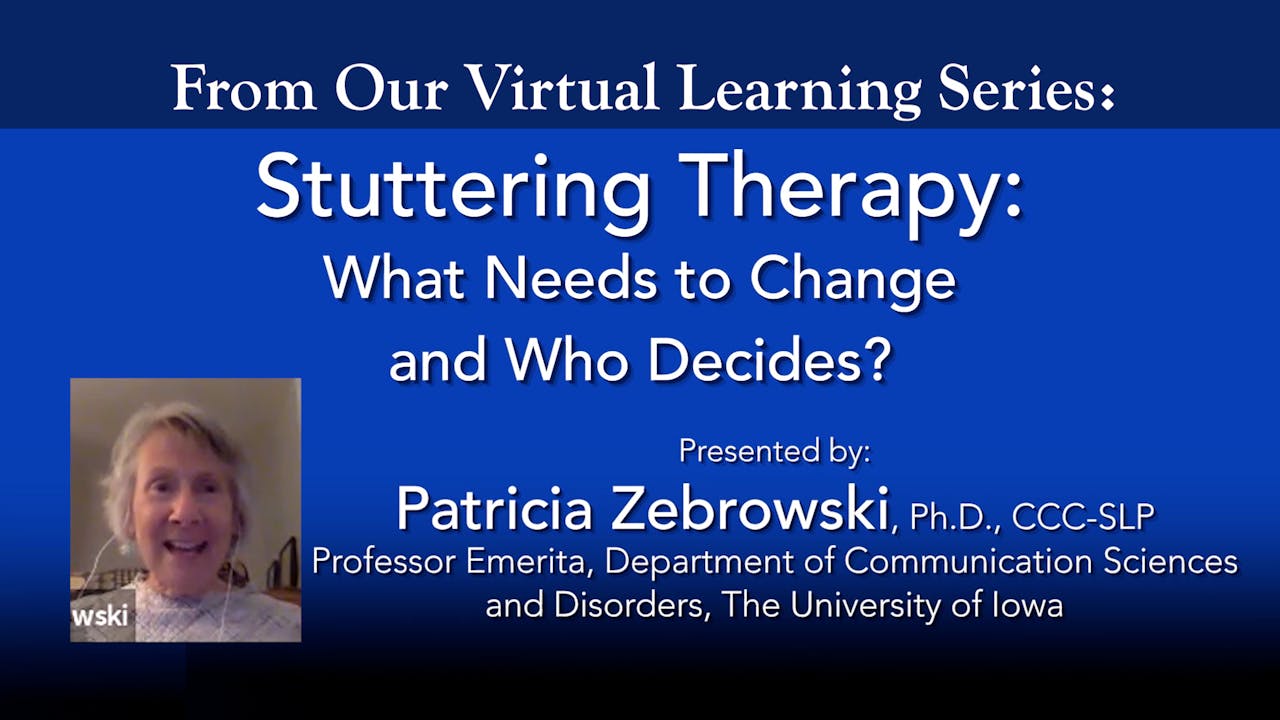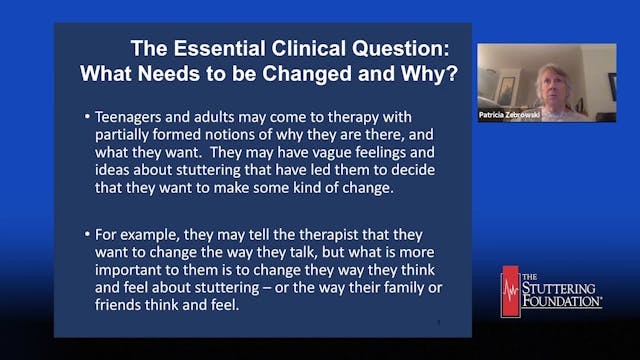Stuttering Therapy: What Needs to Change
Adolescents and adults who stutter (AWS) often come to therapy unclear about what, if anything, they want to change about their stuttering, and why it is important for them to do so. While speech fluency is frequently at the top of the list for AWS (and certainly for speech-language pathologists) this focus can mask more personally meaningful changes, such as the way AWS and their listeners react to their stuttering. The mismatch between therapy goals and their meaningfulness to the individual can result in noncompliance, relapse or decreased likelihood of continuing in therapy altogether. In this presentation, we reframe motivation as readiness to change, and describe ways to help AWS identify both what they want to change about their stuttering and what they are ready to take on in the process of doing so.
Intended audience: Speech-Language Pathologists, Parents of Children and Teens who Stutter, Adults who Stutter
Bio: Tricia Zebrowski, Ph.D., CCC-SLP is Professor Emerita at the University of Iowa, and a speech-language pathologist specializing in stuttering. Her clinical, research and teaching expertise is stuttering intervention, with a special focus on teenagers who stutter. For over 20 years, Tricia directed UISPEAKS for Teens, a residential therapy program for teens who stutter. Her most recent work attempts to uncover the ways of thinking that facilitate teenagers’ decisions about their stuttering.
-
TSF Webinar - Zebrowski_Stuttering Therapy

